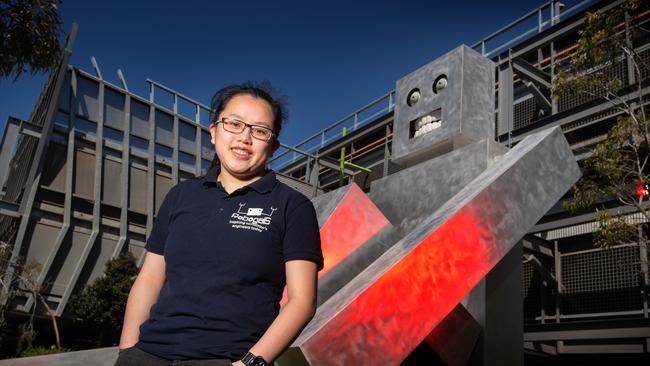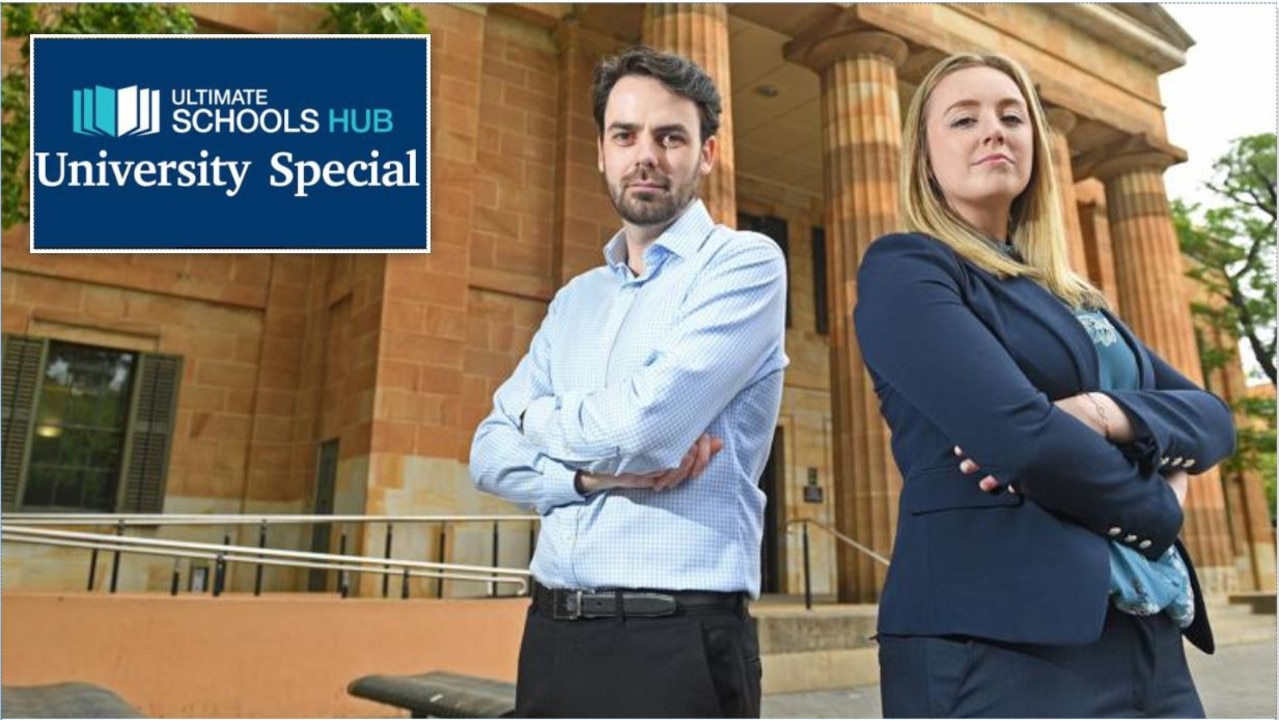Best Victorian universities helping students to land a full-time job
Students at regional universities in Victoria are more likely to land a job than graduates from prestigious institutions. See the list and how they compare.
Exclusive: Students at regional universities are more likely to land a job than graduates from prestigious “sandstone’’ institutions.
Only two big-city universities are among the top 10 for graduate employment – and neither is in Victoria – exclusive new data obtained by The Herald-Sun reveals.
Among the top eight universities, at least three quarters of last year’s graduates found full-time work this year.
But in the worst-performing universities, more than half the graduates were still hunting for a full-time job, four months after finishing their degree.
The top-performing university with headquarters in Victoria is Monash University, where 72.3 per cent of students have found full-time work within four months of graduation.
Emily Qiao is in the third year of a double degree in electrical and computer systems engineering and commerce, and has already completed an internship with Telstra.
“Engineering covers a lot of problem-solving and practical skills that companies look for,’’ she said.
“I’m the type who loves a challenge, and what’s exciting about the degree is it’s different every day.
“My end goal is to start my own robotics business.’’
Ms Qiao is also the chief operating officer of RoboGals Global – an organisation to promote women in engineering.

A Monash University spokesman said graduates were given “hands-on experience’’.
“Our extensive collaboration with industry professionals across the world means students get access to cutting-edge knowledge and skills that can help them secure a job before graduation,’’ he said.
Federation University, with campuses in Gippsland, Berwick, Ballarat, Wimmera and Melbourne, achieved a 67.2 per cent employment rate.
At the Australian Catholic University, a national university which has campuses in Melbourne and Ballarat, 72.4 per cent of graduates found work within four months.
Across Australia, 68.7 per cent of all university graduates found full-time work this year– down from 72.2 per cent in 2019.
But in COVID-19 ravaged Victoria, just 57 per cent of students at the University of Melbourne, Edith Cowan University and 57.8 per cent at Victoria University have found full-time work.
A Victoria University spokesperson said its graduates are more likely to work part-time or as contractors, but catch up to the national average rate of full-time employment within three years.
A University of Melbourne spokeswoman said many of its graduates go to further study in Masters and Doctoral degrees, as well as finding full-time work.
La Trobe University and RMIT University both have an employment rate of just over 64 per cent.
Seven out of 10 fresh graduates from Deakin University and the Swinburne University of Technology have found full-time jobs.
Charles Sturt University, based in regional NSW, is the nation’s best for job prospects, with 84.7 per cent of students finding full-time work within four months of graduating.
The University of NSW, with a 76.2 per cent employment rate for graduates, and the University of Sydney, with 75.1 per cent, are the only “sandstone universities’’ in the top 10.
Victoria – where employment has been king-hit by months of COVID-19 lockdowns – and Western Australia have the nation’s worst-performing universities for job outcomes this year.
Barely 54 per cent of students at the University of Western Australia and Murdoch University were in full-time work four months after graduation.
Federal Education Minister Dan Tehan said nine out of 10 Australian university graduates find full-time work within three years of graduation.
He said the COVID-19 pandemic had a “major impact’’ on graduate employment rates this year.
He said the federal government would spend $550 million for up to 30,000 extra university places next year, as well as short courses for Australians to upskill during the COVID-19 recession.

The survey, commissioned by the federal Department of Education, does not reveal whether graduates found work in the same field they studied at university.
It says graduates from regional universities are more likely to be older, and to study externally and part-time.
“(They) are more likely to have completed vocational degrees and … have also fared better in the current downturn,’’ it says.
The Education Department said the COVID-19 recession had cut full-time employment rates among most university graduates this year.
“Graduates from regional universities are more likely to be older, studying externally and part-time, and maintain a continuing connection with the labour market,’’ it says.
“(This) explains, in part, why graduates from these universities may have fared better in the current downturn.’’
The employment rates are based on graduates looking for full-time work, four months after finishing an undergraduate degree.
MORE NEWS
Big bucks after uni: Who’s earning more than a lawyer
Big bucks after uni: Who’s earning more than a lawyerShock salaries reveal women paid less than men in first job
Originally published as Best Victorian universities helping students to land a full-time job



